South Africa
At 65.9%, voter turnout for South Africa’s 2019 national elections was the lowest ever in the country’s democratic history.
Several factors including bad weather and frustration with the ruling party have been cited to explain why several eligible voters stayed away.
So what is keeping young South African voters away from the ballot box?
‘‘I’m not voting tomorrow, because we have problems, like when we apply for bursaries, looking for jobs, there’s nothing happening. I don’t see the use of voting’‘, a youth told our Daniel Mumbere.
‘‘There is no use of voting’‘, was the response from another youth when asked if she would vote in the just ended general elections.
Sizwe Mpofu-Walsh, a political commentator, who started a Whatsapp news channel to engage with young people during the elections believes that the dominance of key political positions by older people could be a factor.
‘‘I think that the social economic conditions in South Africa disproportionately affect young people. And so, poverty stops you from voting sometimes, unemployment makes it harder to vote often for people who have to spend their disposable income on even a journey to vote’‘, Walsh said.
A young Sudanese student, who participated in the recent protests that toppled long serving president Omar al-Bashir, was in South Africa, as part of the African Union observer mission. She believes that young people are often frustrated by the slow pace at which governments deliver results.
‘‘And they also don’t like political parties, and so they don’t get involved in political issues or work, they just like to be free, and because of this they have a gap in understanding political processes ‘’, the young Sudanese said.
Nigeria’s ex-president, Goodluck Jonathan, who led the observer mission of the Electoral Institute for Sustainable Democracy in Africa, believes that young people need to be empowered and made to realise that age comes with responsibility.
‘‘We should be able to penetrate these youth groups and use them to create this awareness that you must know that when you attain the age of 18, that is the age of responsibility. It is the age at which your vote can determine who will become president of your country’‘, he said.
Ultimately, all political stakeholders in South Africa, including political parties, and organisations targeting the youth, might need to take on radical approaches like Sizwe’s Whatsapp news channel or faster and efficient service delivery, to convince young people that voting and political engagements are important.






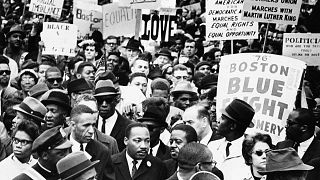

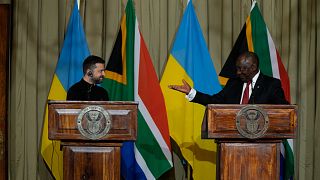
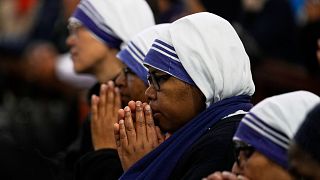
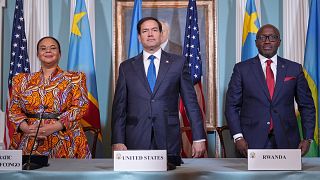
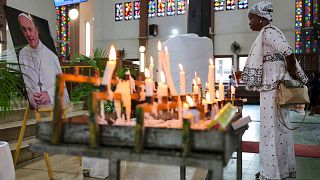
Go to video
Tanzania bans agricultural imports from South Africa and Malawi
01:16
Africa mourns Pope Francis, a voice for peace and justice
01:14
ECOWAS Meets in Ghana to Tackle Member Withdrawals
Go to video
South Africa's tax row heads to court as implementation date nears
Go to video
South Africa appoints Mcebisi Jonas as special US envoy in bid to ease tensions
Go to video
EU foreign ministers discuss Ukraine, Syria and EU-African relations in Luxembourg.